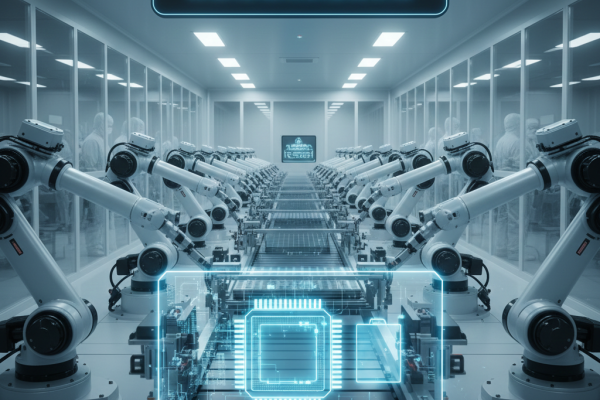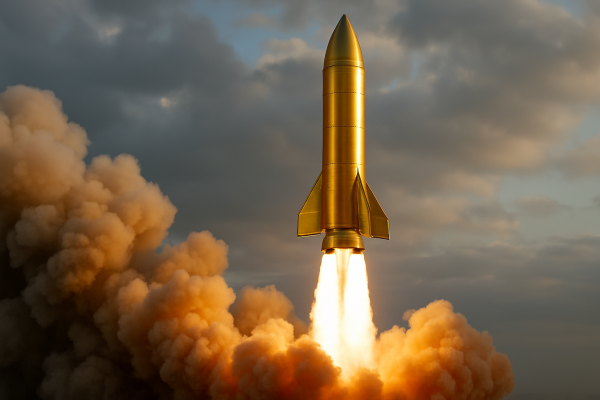January 24th, 2025 | 07:15 CET
First Phosphate, Volkswagen, BYD – The automotive industry is in a flurry again
Donald Trump is wasting no time. On the day of his swearing-in, he signed several decrees and explicitly mentioned higher tariffs in his inaugural address. The new External Revenue Service will be responsible for working out exactly what these will look like. Trump wants to close the loopholes, such as imports via Mexico, in order to protect and strengthen his own economy. This is a disaster for the European automotive industry in particular because, after the difficulties in China, there is a risk of further losses in the second-largest sales market. In addition, vehicle manufacturers need more powerful batteries in their electric vehicles. Lithium iron phosphate (LFP) batteries are becoming more and more popular for this purpose. However, there is a bottleneck here as well. We take a closer look at the automotive market.
time to read: 5 minutes
|
Author:
Armin Schulz
ISIN:
FIRST PHOSPHATE CORP | CA33611D1033 , VOLKSWAGEN AG VZO O.N. | DE0007664039 , BYD CO. LTD H YC 1 | CNE100000296
Table of contents:

"[...] Nickel, therefore, benefits twice: firstly from its growing importance within batteries and secondly from the generally growing demand for such storage. [...]" Terry Lynch, CEO, Power Nickel
Author
Armin Schulz
Born in Mönchengladbach, he studied business administration in the Netherlands. In the course of his studies he came into contact with the stock exchange for the first time. He has more than 25 years of experience in stock market business.
Tag cloud
Shares cloud
First Phosphate – An insider tip for the growing LFP battery market
Most people associate phosphate with fertiliser, but high-purity phosphate is now needed for the production of the growing market for electric vehicles. Automakers are increasingly turning to lithium iron phosphate (LFP) batteries, led by BYD with its blade batteries. The reasons are increased safety, cost efficiency, and environmental friendliness. The market is expected to grow from USD 10 billion in 2021 to USD 50 billion within 7 years. First Phosphate's Bégin-Lamarche project has 2 of 3 components for LFP. According to the preliminary economic assessment (PEA), the property can produce 900,000 tons per year of phosphate concentrate with a phosphorus pentoxide (P2O5) grade of 40% and 380,000 tons of magnetite with a grade of 92% iron oxide.
The mine is expected to have a lifespan of 23 years. The Company is fortunate to have access to high-purity magmatic phosphate rock that contains hardly any harmful elements. The high purity of the raw material makes it ideal for refining into purified phosphoric acid. The Company has secured a leading licence to use the technology to produce high-quality phosphoric acid. A total production capacity of 600 t P2O5 per day is possible. On December 18, the Company announced the signing of two long-term purchase agreements for P2O5. At the same time, discussions are being held with the Pekuakamiulnuatsh First Nation regarding a financial stake in the project.
The offtake agreements improve First Phosphate's chances of future financing. In addition, the Company was able to raise around CAD 2.7 million through a private placement at the beginning of January. Larry Zeifman, a director, also increased his stake by 285,714 flow-through shares. To date, insiders have also purchased roughly 4.6 million shares in the market since the company first listed publically in February of 2023. This shows that the Company's officers are also convinced of the strategy of establishing a fully integrated LFP battery supply chain in North America. In addition to phosphate, the Company can generate further revenue from recycling waste products such as gypsum and the sale of magnetite and ilmenite. The share price has risen by over 125% since early December at its peak and has been consolidating since the high of CAD 0.435 and is currently trading at CAD 0.36.
Volkswagen – Positioned for Recovery
After a challenging year in 2024, Volkswagen's challenges remain high in 2025. Last year, vehicle sales in China slumped by 10% to 2.93 million. This marks the lowest level since 2012 in the world's largest automobile market. In Europe, sales figures are 500,000 vehicles below the pre-corona years. In addition, high costs, inefficiencies due to the Company's transformation towards e-mobility, and regulatory requirements have resulted in a slim profit margin of just 2.3%. To address this, a savings program called "Accelerate Forward" has been initiated, which is expected to save around EUR 10 billion by 2026, thereby improving the margin to 6.5%.
To attract more buyers, the Company plans to offer more affordable electric vehicles. The key to this is the LFP batteries that will be used in the future, for example, in the ID.2. Thanks to their longer lifespan, greater safety, and lower costs, electric vehicles can likely be offered for less than EUR 25,000. This is intended to appeal to buyers who would like an electric vehicle but for whom the price has been too high up to now. If this move is successful, the Company could win back market share.
CEO Oliver Blume reacted calmly to Donald Trump's announcement of tariffs. He sees the North American market as an important building block for further growth. The Company is investing USD 15 billion in the US and USD 5 billion in Canada. Even though around 640,000 vehicles are currently exported from Europe to the US, Blume is counting on the economically minded Donald Trump and wants to work with the US administration. With its two existing production plants in Chattanooga and Columbia, the Company is in a good negotiating position. The share price has been on the rise since the beginning of December and is currently trading at EUR 94.24.
BYD – Expansion in the US is becoming more difficult
Currently, there is uncertainty among Chinese automakers, especially BYD. It is still unclear how the new US president will deal with Chinese products or how high the tariffs will be. BYD wanted to avoid high tariffs by building a factory in Mexico. However, it is now clear that tariffs on goods from Mexico are to be raised by 25%. This would make it more difficult for the Chinese industry leader to access the US market. It remains to be seen how BYD reacts to the new circumstances. Otherwise, the Chinese automaker is doing extremely well.
While other automakers were struggling, BYD was able to report record sales of around 4.3 million vehicles, exceeding even its own expectations. Of the 4.3 million vehicles, 1.76 million were fully electric, with the remainder being hybrid vehicles, placing BYD just behind Tesla in terms of deliveries of pure electric vehicles. The main advantage, in addition to vertical integration, lies in the blade battery, an LFP battery. These batteries are installed not only in the Company's own vehicles but also in other electric vehicles from major brands.
Analysts expect revenue growth of 25% and earnings per share to jump to around 20% in 2025. However, according to experts, the Chinese market alone will not be the source of the Company's growth, as demand there is expected to weaken. If there is consolidation, BYD can benefit from it because the Company can also accept lower prices thanks to a higher profit margin. The Company has further growth potential, but there are also some risks. The share has held up well despite possible new US customs duties and is trading at EUR 33.91.
The world could be drawn into a trade war, which would also impact the automotive industry. Reliable supply chains are essential to ensure access to critical raw materials. First Phosphate is benefiting from the booming market for LFP batteries and is setting up a corresponding supply chain for North America. Volkswagen aims to use LFP batteries to make its electric vehicles cheaper and thus attract new buyers. The Company believes it is well-positioned in terms of tariffs. Meanwhile, BYD has had a record year and plans to expand further. However, the new possible US tariffs are hindering market entry there.
Conflict of interest
Pursuant to §85 of the German Securities Trading Act (WpHG), we point out that Apaton Finance GmbH as well as partners, authors or employees of Apaton Finance GmbH (hereinafter referred to as "Relevant Persons") may hold shares or other financial instruments of the aforementioned companies in the future or may bet on rising or falling prices and thus a conflict of interest may arise in the future. The Relevant Persons reserve the right to buy or sell shares or other financial instruments of the Company at any time (hereinafter each a "Transaction"). Transactions may, under certain circumstances, influence the respective price of the shares or other financial instruments of the Company.
In addition, Apaton Finance GmbH is active in the context of the preparation and publication of the reporting in paid contractual relationships.
For this reason, there is a concrete conflict of interest.
The above information on existing conflicts of interest applies to all types and forms of publication used by Apaton Finance GmbH for publications on companies.
Risk notice
Apaton Finance GmbH offers editors, agencies and companies the opportunity to publish commentaries, interviews, summaries, news and the like on news.financial. These contents are exclusively for the information of the readers and do not represent any call to action or recommendations, neither explicitly nor implicitly they are to be understood as an assurance of possible price developments. The contents do not replace individual expert investment advice and do not constitute an offer to sell the discussed share(s) or other financial instruments, nor an invitation to buy or sell such.
The content is expressly not a financial analysis, but a journalistic or advertising text. Readers or users who make investment decisions or carry out transactions on the basis of the information provided here do so entirely at their own risk. No contractual relationship is established between Apaton Finance GmbH and its readers or the users of its offers, as our information only refers to the company and not to the investment decision of the reader or user.
The acquisition of financial instruments involves high risks, which can lead to the total loss of the invested capital. The information published by Apaton Finance GmbH and its authors is based on careful research. Nevertheless, no liability is assumed for financial losses or a content-related guarantee for the topicality, correctness, appropriateness and completeness of the content provided here. Please also note our Terms of use.




